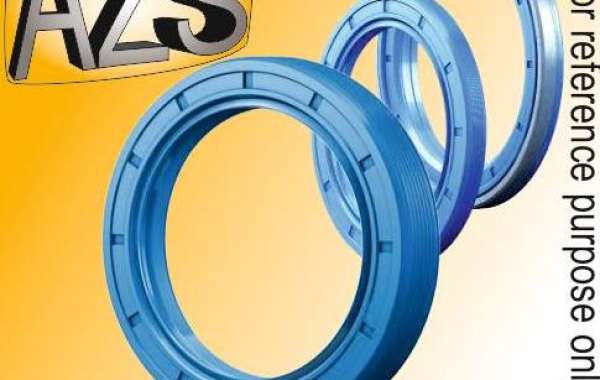The world of machinery relies on a delicate balance between smooth operation and efficient protection. Within this intricate dance, two unsung heroes play a vital role – oil seals and seal kits. While they may not be the flashiest components, their importance cannot be overstated.
Oil Seals: Guardians Against Friction and Contamination
An oil seal, also known as a rotary shaft seal, acts as a barrier between a rotating shaft and the housing it passes through. Its primary function is twofold:
- Lubricant Retention: Oil seals prevent essential lubricating fluids (oil, grease) from leaking out of the internal chamber of a machine. This ensures that bearings and other moving parts are adequately lubricated, minimizing friction and wear, ultimately extending the lifespan of the equipment.
- Contamination Exclusion: Oil seals serve as a shield, preventing external contaminants like dust, dirt, and water from entering the internal compartment. Contaminants can cause abrasive wear, disrupt lubrication, and lead to premature component failure.
Oil seals come in various shapes, sizes, and materials to cater to the specific needs of different applications. Some common types include:
- Single Lip Seals: The most widely used type, featuring a single sealing lip for general-purpose applications.
- Double Lip Seals: Offer enhanced sealing performance with two sealing lips, ideal for applications with higher pressure or contamination risks.
- TC (Temperature Compensated) Seals: Designed with special materials and configurations to withstand extreme temperature fluctuations.
- Cassette Seals: These modular seals consist of interchangeable components, allowing for customization and easier installation.
CFW Oil Seals and NOK Oil Seals: Leaders in Sealing Technology
Within the vast landscape of oil seals, certain brands have established a reputation for excellence. CFW Oil Seals and NOK Oil Seals are two such examples, renowned for their commitment to quality and innovation:
- CFW Oil Seals: A leading manufacturer known for high-performance oil seals, CFW offers a comprehensive range of seals for demanding applications across various industries. Their expertise lies in developing seals that can withstand extreme temperatures, high pressure, and harsh environments.
- NOK Oil Seals: Renowned for their cutting-edge materials and design, NOK Oil Seals are at the forefront of sealing technology. They offer a diverse range of seals for automotive, industrial, and aerospace applications, known for their exceptional durability and reliability.
Seal Kits: A Comprehensive Solution for Planned Maintenance
Seal kits group various oil seals, along with other related components like O-rings and gaskets, required for servicing a specific machine or engine. These kits offer a convenient and cost-effective way to replace worn-out seals during maintenance procedures. They ensure that all necessary seals are readily available, minimizing downtime and simplifying the maintenance process.
Here's a breakdown of the benefits of using seal kits:
- Convenience: Having all the necessary seals readily available in a single kit saves time and effort during maintenance procedures. No need to source individual components, streamlining the process.
- Cost-Effectiveness: Seal kits often offer a price advantage compared to purchasing individual components separately.
- Compatibility: The components within a seal kit are specifically chosen to be compatible with each other and designed to work seamlessly within the particular machine.
- Reduced Risk of Error: By using a pre-assembled kit, the risk of selecting the wrong size or type of seal for your application is minimized.
Choosing the Right Seal Kit and Oil Seal for Optimal Performance:
Selecting the appropriate seal kit and oil seal for your application is crucial for optimal performance and longevity. Here are some key factors to consider:
- Machine Model: Identify the specific machine model you're working on. This ensures you choose a seal kit designed for that particular equipment.
- Seal Specifications: Consult the machine's manual or manufacturer's recommendations for the required oil seal specifications. This includes factors like shaft size, material, and operating temperature range.
- Seal Material Compatibility: The chosen seal material needs to be compatible with the shaft material and the type of lubricant being used (oil or grease).
- Application-Specific Requirements: Consider factors like pressure levels, presence of contaminants, and vibration levels when selecting the right oil seal.
Conclusion: Investing in Reliable Seals and Kits
Seal kits and oil seals may seem like minor components, but they play a vital role in ensuring the smooth operation and longevity of your machinery. By understanding their functions and selecting the right options for your specific needs, you can minimize downtime, prevent costly repairs, and keep your equipment running optimally. Invest in reliable seal kits and oil seals – a small step that yields significant benefits in the long run.
See more








